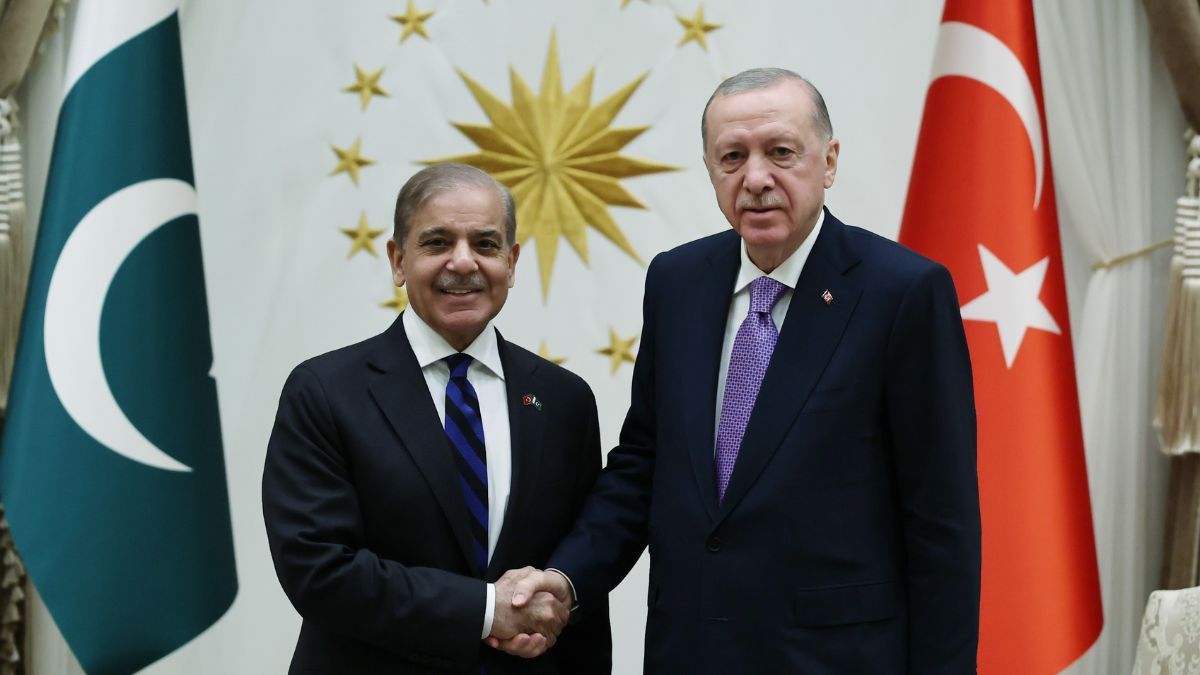7 factors that forced India to crack down on Turkey’s TRT
India has cracked down on Turkish state broadcaster TRT and withheld its X account for spreading Pakistani propaganda and misinformation amid rising tensions, following the emergence of a ‘Boycott Turkey’ campaign.
read more
India has taken a tough stance against Turkish state broadcaster TRT for its biased and propagandist reporting on India-Pakistan tensions and India’s Operation Sindoor against terror hubs on Pakistani soil.
This comes after reports that the media house was spreading misinformation and acting as a mouthpiece for Pakistani propaganda.
The central government has
with held TRT’s X account
and other digital platforms. Users attempting to access these accounts are now met with a notice stating, “Account withheld. @trtworld has been withheld in India in response to a legal demand.”
Here are seven key reasons behind India’s crackdown on TRT:
Pro-Pakistan and anti-India narratives on Kashmir
TRT has consistently engaged in biased reporting by distorting facts. The Turkish state media portrayed India as an occupier in Kashmir, amplifying alleged human rights abuses and giving a platform to Kashmiri separatist voices.
Campaigns like “Kashmir Under Siege” depicted the region as under illegal Indian military control, closely mirroring Pakistan’s propaganda.
Part of a broader foreign influence network
India’s cyber-intelligence has flagged TRT as an extension of Turkish foreign policy under President Erdoğan, working in coordination with Pakistan’s ISPR.
Messaging patterns, including bot-driven amplification, have mirrored Pakistani information operations aimed at India.
Echoing Chinese and Pakistani propaganda
TRT has often echoed Chinese and Pakistani positions on sensitive issues such as Ladakh, Arunachal Pradesh, and India’s border disputes.
It has also justified Pakistan’s nuclear rhetoric and Islamabad-backed cross-border terrorism by framing them as “freedom struggles”.
Framing India as Islamophobic
TRT has repeatedly portrayed India as anti-Muslim, focusing on issues like the CAA, NRC, and the Hijab controversy.
By distorting facts and using isolated incidents, TRT attempts to project these as systemic, state-sponsored oppression, fuelling communal tensions.
Threat to national security and social harmony
The Indian government views TRT’s content as a deliberate attempt to destabilise internal order, especially in sensitive areas like Kashmir. Such content is seen as inciting unrest among vulnerable and radicalised groups, posing a serious threat to national security.
Amplification of disinformation and fake news
TRT has been accused of spreading unverified and manipulated content, particularly during times of unrest. During the 2020 Delhi riots, TRT-affiliated posts circulated misleading claims about state-sponsored violence against Muslims, further inflaming tensions.
Violation of Indian IT Rules, 2021
India’s Ministry of Electronics and IT (MeitY) flagged TRT for multiple violations, including non-compliance with content moderation norms, failure to appoint grievance officers, and repeated dissemination of anti-India propaganda. The crackdown is also seen as a response to Turkey’s continued interference in India’s internal affairs, especially through platforms like the UNGA and OIC.
India blacks Chinese state mouthpieces
Earlier the same day, the Centre also
blocked the X accounts
of China’s state-run media, Global Times and Xinhua, for spreading unverified and misleading information about the Indian military amid rising tensions with Pakistan.
This comes as evidence surfaced that Turkey had supplied Pakistan with drones and military equipment.
Two Turkish military operatives were killed in Operation Sindoor, exposing Turkey’s direct support to Pakistan in its conflict with India by providing not just over 350 drones but also trained operators, sources told India Today TV.
‘Boycott Turkey’ campaign
A ‘Boycott Turkey’ campaign currently circulating on social media could further damage Ankara’s already struggling economy, especially in sectors like defence, tourism, trade, and investment. This comes as Turkey openly backs Pakistan’s terror activities as a tool of its foreign policy against India.
Since the India-Pakistan conflict began on 7 May following the Pahalgam terror attack, Turkey has faced sharp criticism for allegedly supplying arms to Pakistan and supporting its fight against India.

)
